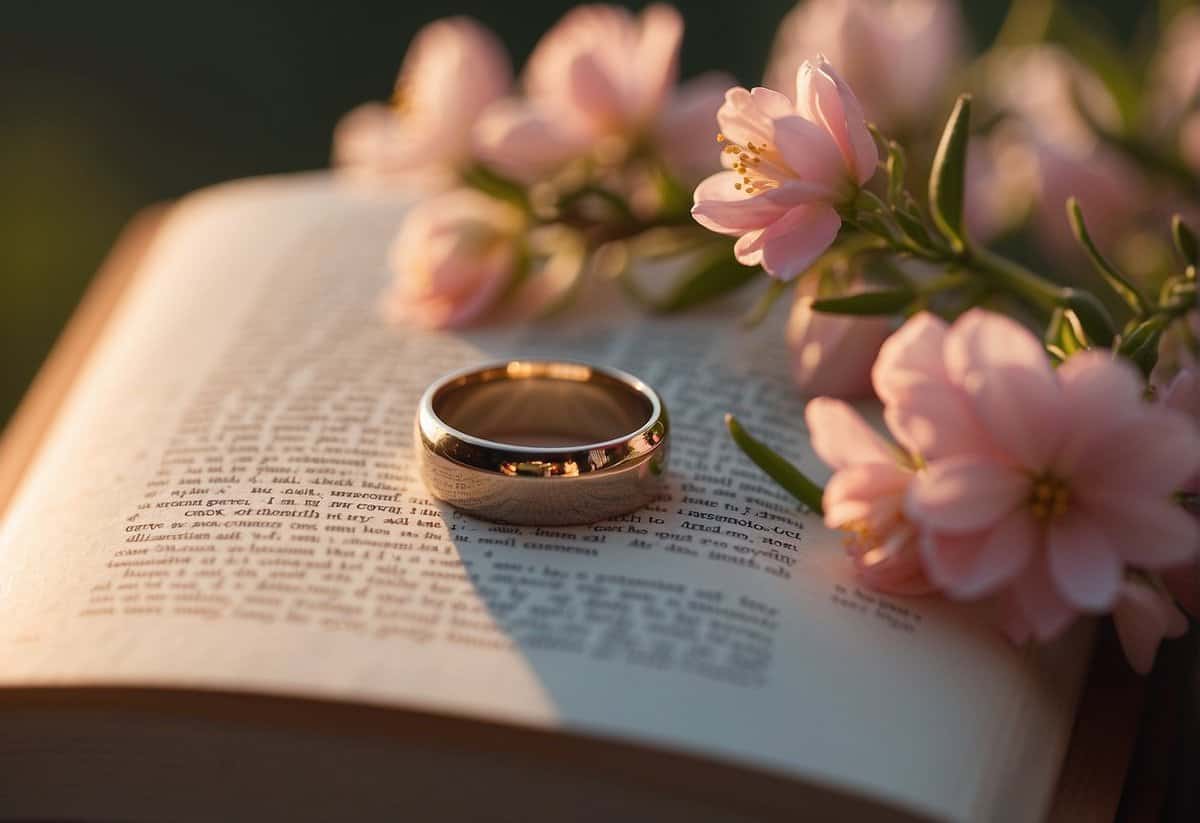What Is the Best Age to Marry? Unpacking the Ideal Time for Matrimony
Deciding the best age to marry is a deeply personal choice that varies for each individual. Cultural norms, personal goals, and maturity levels play significant roles in this decision. While some people marry early, others may wait until they feel more established in their careers and personal lives. According to Psychology Today, for some, early marriage is before the age of 26, while others see the late twenties to early thirties as a more suitable time. It’s important to note that there’s no one-size-fits-all answer—what matters most is what feels right for you.

The concept of an “ideal” marriage age also takes into account the alignment of personal development goals with the responsibilities that marriage entails. Being comfortable and confident in your job and personal life can be a strong foundation for a lasting partnership, as suggested by experts on Brides.com. Marriage involves merging lives with another, which often requires a certain level of life experience and personal growth. Thus, the best time to get married may also align with when you’ve reached a sense of individual completeness and are ready to share that with someone else.
Statistical insights propose various age ranges for entering into marriage, with some research suggesting that marrying between the ages of 28 and 32 can potentially decrease the likelihood of divorce, as mentioned on TIME. Nevertheless, societal perspectives continue to evolve, and the decision on when to marry should ultimately be made based on your personal circumstances, readiness, and personal beliefs.
Key Takeaways
- The ideal age to marry is subjective and varies according to individual circumstances.
- Personal development and life stability can contribute to the readiness for marriage.
- Societal norms and statistical research provide varying perspectives on marriage age.
Understanding the Concept of Marriage

Before diving into the nuances of the ideal age to tie the knot, you need to grasp what marriage really entails. It’s a partnership that extends beyond romance, encompassing legal, social, and often spiritual dimensions.
Goldilocks Theory of Marriage
The Goldilocks Theory of Marriage suggests that there is a ‘just right’ age to get married—neither too early nor too late. Marriages in your early twenties may adapt with you as you mature, yet waiting beyond your mid-thirties could mean a clash of well-set habits. Research by Focus on the Family illustrates that marrying between the ages of 22 and 25 may balance marital quality and stability effectively.
Marital Timing and Societal Expectations
Your environment and societal expectations heavily influence notions of the ‘best age’ to marry. Gender roles and social pressures can impact your decision, suggesting a suitable timeframe for marriage to optimize marital satisfaction and reduce the chances of divorce. However, it’s crucial to assess personal readiness over societal benchmarks, since fulfillment in marriage often relates to maturity and preparedness rather than age.
Prime Age for Matrimonial Unions

Finding the right age to tie the knot is a balance between personal readiness and societal expectations. Your journey to the altar can be influenced by various factors, including age-specific trends and individual maturity levels.
Age Considerations for Men and Women
When considering the optimal age for marriage, men and women may face different societal pressures and expectations. Studies have indicated that marrying before the age of 26 could be considered early for men, with a significant portion of males choosing to marry on time between 27 and 30 years old. After 30, they tend to enter into a late marriage phase. For women, societal trends also influence the decision on when to get married, with many opting for the late 20s as a balance between career development and family planning. It’s important for you to think about where you stand on this spectrum and what feels right for you.
Role of Maturity and Life Experience
The role of personal development cannot be overstated when determining the best age to marry. Your maturity and life experience play crucial roles in preparing you for the complexities of a marital relationship. Marrying in the mid-30s, for example, might offer more stability, as individuals are likely to have more life experiences from which to draw upon. Entering into a marriage with a strong sense of self can contribute positively to the partnership’s longevity and satisfaction. However, an early marriage isn’t necessarily a recipe for failure; it simply requires you to be certain of your readiness to commit and to understand the responsibilities that come with marriage.
Influence of Personal Development on Marriage

When considering the best age to marry, your personal development plays a pivotal role. It shapes the foundation on which you build a marriage, affecting its strength and longevity.
Importance of Education and Career
Your education and career path significantly affect your readiness for marriage. Acquiring a good education often provides a wider range of job opportunities, equipping you with knowledge and valuable skills. Additionally, establishing your career before marriage can grant you the confidence and sense of achievement necessary to engage in a committed relationship. An established career may also mean a steadier income, which is conducive to creating a stable environment for marriage.
Financial and Emotional Preparedness
Financial stability is a key aspect of being ready for marriage. You’ll want to ensure that you have a solid financial foundation, including savings and an understanding of budget management. Being financially prepared isn’t just about money; it’s about demonstrating the responsibility needed to run a household.
Meanwhile, emotional maturity is crucial. This is not merely the passage of time, but the accumulation of life experiences that grants wisdom. Waiting until you feel emotionally prepared, with a strong sense of self and the ability to handle the ups and downs of a relationship, likely makes for a more resilient marriage. Your emotional readiness ensures that you can support your partner and navigate the complexities of married life with grace and understanding.
Societal Perspectives and Statistical Insights

Exploring the best age to marry often involves looking at various societal perspectives and analyzing statistical data. You’ll find that societal norms and personal networks can influence marital choices, while divorce rates and changing patterns offer a broader view of marriage trends.
Patterns in Marriage and Divorce Rates
According to the U.S. Census Bureau, the age at which people are getting married has been gradually increasing over the years. As of 2019, you can see significant changes in when people choose to tie the knot compared to previous generations. This shift is also reflected in national surveys like the National Survey of Family Growth, which help to track patterns in not only marriage but also divorce. For example, weddings are happening later in life, and this could be contributing to reported lower divorce rates, as people take more time to understand themselves and what they want from a partner before committing.
Key Points:
- The typical age for marrying is rising.
- Lower divorce rates may be linked to later marriages.
Influence of Family and Friends in Marriage Choices
Your decision to marry can be influenced by your immediate social circle. Relationship experts often find that pressure from family to follow traditional marriage timelines can impact your decision. Meanwhile, friends who are getting married might indirectly affect your own views on dating and marriage. It’s not uncommon for individuals to feel an internal or external push towards marriage if it seems to be a common pattern within their social group.
Insights:
- Family expectations can pressure individuals to marry.
- The marital status of friends may influence one’s own timing.
Frequently Asked Questions

In this section, you’ll find answers to common inquiries about the best ages for tying the knot, from ideal age ranges to the cultural considerations of marrying early or late.
What’s considered the ideal age for a woman to tie the knot?
For women, the ideal age to get married can vary based on personal and societal factors. Some experts suggest that the best time is when you feel personally and professionally ready.
What do experts suggest as the prime age for men to marry?
Experts indicate that the prime age for men to marry is often when they have achieved a level of emotional maturity and financial stability, which tends to be after the age of 26 up to 30.
How does science weigh in on the optimal age for getting married?
Science suggests that there is a statistical “sweet spot,” with studies showing lower divorce rates for couples that get married between the ages of 28 and 32.
What is seen as a late age for marriage?
A late age for marriage is often considered to be after the age of 32. However, this is becoming less significant as many choose to marry later in pursuit of personal goals and careers.
Is getting married at 25 typically considered too early?
Getting married at 25 is not typically considered too early, especially if both partners feel ready. That said, marrying at a younger age may mean facing challenges like establishing careers and financial independence together.
What are the implications of marrying at the age of 21?
At 21, you may still be in the process of self-discovery and career development. Marrying at this age can involve complexities, such as evolving commitments and shared financial responsibilities.


